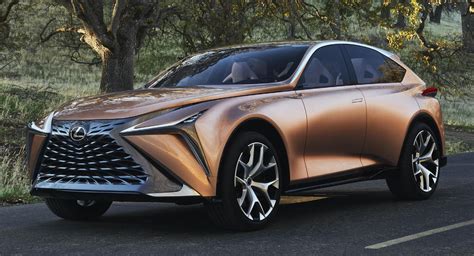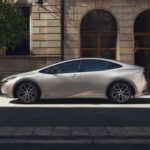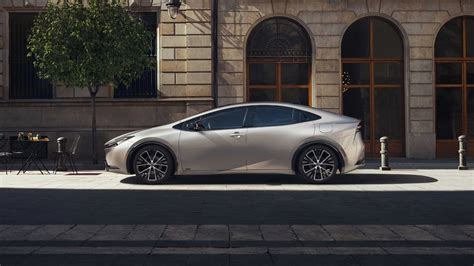
A new hybrid sedan from Toyota, speculated to be the next-generation Camry, is generating buzz for offering a Lexus-like driving experience at a significantly lower price point, potentially disrupting the mid-size sedan market. Initial impressions from reviewers highlight its refined interior, comfortable ride, and advanced technology, positioning it as a strong contender against established rivals.
The automotive world is abuzz with anticipation over a new hybrid sedan from Toyota, widely believed to be the next iteration of the Camry, which is garnering attention for delivering a premium driving experience akin to Lexus models but at a substantially more accessible price. This development could reshape the landscape of the mid-size sedan segment, challenging existing players and attracting a broader consumer base. Early reviews and insights suggest that this yet-to-be-officially-named vehicle boasts a sophisticated interior, a remarkably smooth and comfortable ride, and a suite of cutting-edge technologies, positioning it as a formidable competitor in a fiercely contested market.
The buzz surrounding this potential Camry successor stems from its ability to seemingly bridge the gap between mainstream affordability and luxury-level refinement. While Toyota has remained tight-lipped about specific details, industry experts and automotive journalists who have had the opportunity to experience the vehicle firsthand are drawing comparisons to Lexus, Toyota’s luxury division. This has fueled speculation that Toyota is aiming to elevate the Camry’s status and broaden its appeal by incorporating design cues, materials, and features typically found in higher-end vehicles.
One of the key factors driving this perception is the reported quality of the interior. Reviewers have consistently praised the use of premium materials, the attention to detail in the design, and the overall sense of spaciousness and comfort within the cabin. This marks a significant departure from previous Camry models, which, while reliable and practical, were often criticized for their somewhat bland and utilitarian interiors.
Beyond aesthetics, the new hybrid sedan is also said to excel in terms of ride quality. The suspension system has been meticulously tuned to provide a smooth and composed ride, effectively absorbing bumps and road imperfections. This results in a more comfortable and enjoyable driving experience, particularly on long journeys. Furthermore, the vehicle is equipped with a range of advanced technologies, including a state-of-the-art infotainment system, advanced driver-assistance systems (ADAS), and connectivity features. These technologies not only enhance the driving experience but also contribute to improved safety and convenience.
The pricing strategy for this new hybrid sedan is expected to be a crucial factor in its success. While Toyota has not yet announced official pricing, industry analysts predict that it will be positioned competitively within the mid-size sedan segment, making it an attractive alternative to both mainstream and premium offerings. The combination of Lexus-like features, a hybrid powertrain, and a competitive price point could prove to be a winning formula, attracting buyers who are looking for a blend of luxury, fuel efficiency, and value.
The potential impact of this new hybrid sedan on the mid-size sedan market cannot be overstated. The Camry has long been a dominant force in this segment, consistently ranking among the best-selling cars in the United States. However, the market is becoming increasingly competitive, with new entrants and established players vying for market share. By offering a vehicle that combines the affordability of a Camry with the refinement of a Lexus, Toyota could further solidify its position and attract a new generation of buyers.
The automotive industry is currently undergoing a period of significant transformation, driven by factors such as electrification, autonomous driving, and changing consumer preferences. Automakers are constantly innovating and developing new technologies to meet these challenges. Toyota has been at the forefront of this transformation, investing heavily in hybrid technology and exploring new mobility solutions. The new hybrid sedan is a testament to Toyota’s commitment to innovation and its ability to adapt to the evolving needs of the market.
The unveiling of this new hybrid sedan is eagerly awaited by automotive enthusiasts and industry observers alike. It represents a significant step forward for Toyota and has the potential to redefine the mid-size sedan segment. As more details emerge in the coming months, the anticipation will only continue to grow. The vehicle is not just a new model; it is a statement of intent from Toyota, signaling its ambition to remain a leader in the automotive industry for years to come.
The strategic importance of the Camry to Toyota’s global sales cannot be overlooked. As one of their flagship models, the Camry has consistently delivered strong sales figures, making it a crucial component of Toyota’s overall revenue and market share. This upcoming iteration is thus not just another vehicle launch but a pivotal moment for the company to reaffirm its commitment to innovation, sustainability, and customer satisfaction. The integration of hybrid technology, which Toyota has pioneered and refined over decades, further underscores this commitment. It positions the new Camry as a forward-thinking, environmentally conscious choice for consumers who are increasingly aware of their carbon footprint.
Furthermore, the decision to imbue the Camry with Lexus-like qualities is a calculated risk that could yield substantial rewards. By blurring the lines between mainstream and luxury, Toyota is aiming to capture a wider demographic of buyers who may have previously aspired to own a Lexus but were deterred by the higher price tag. This strategy allows Toyota to leverage the brand recognition and prestige of Lexus while still maintaining the affordability and accessibility that have made the Camry so popular.
The success of this strategy will depend on several factors, including the final pricing, the effectiveness of the marketing campaign, and the overall reception of the vehicle by consumers and critics alike. However, the initial signs are promising, with many industry experts predicting that the new Camry will be a major hit. The anticipation surrounding its release is a testament to Toyota’s reputation for quality, reliability, and innovation.
The automotive industry is a complex and dynamic ecosystem, with numerous factors influencing consumer behavior and market trends. In recent years, the demand for SUVs and crossovers has surged, while the popularity of sedans has declined somewhat. However, there is still a significant market for sedans, particularly among buyers who value fuel efficiency, comfort, and affordability. The new Camry is well-positioned to cater to this market, offering a compelling combination of these attributes.
Moreover, the increasing adoption of electric vehicles (EVs) is also shaping the automotive landscape. While the new Camry is not a fully electric vehicle, its hybrid powertrain offers a significant improvement in fuel economy compared to traditional gasoline-powered cars. This makes it an attractive option for buyers who are not yet ready to make the switch to EVs but are still looking to reduce their environmental impact.
Toyota’s decision to focus on hybrid technology is a strategic one, reflecting the company’s belief that hybrids will play a crucial role in the transition to a more sustainable transportation system. Hybrids offer a number of advantages over EVs, including longer range, faster refueling times, and lower purchase prices. They also do not require the development of extensive charging infrastructure, which is a major challenge for the widespread adoption of EVs.
The new Camry is expected to come equipped with a range of advanced safety features, including automatic emergency braking, lane departure warning, and adaptive cruise control. These features are designed to help prevent accidents and protect occupants in the event of a collision. Toyota has a long-standing commitment to safety, and the new Camry is expected to meet or exceed all relevant safety standards.
The interior design of the new Camry is also expected to be a major selling point. According to reports, the interior will feature premium materials, such as leather and wood trim, as well as a spacious and comfortable cabin. The infotainment system will be user-friendly and intuitive, with a large touchscreen display and smartphone integration.
The exterior design of the new Camry is also expected to be a departure from previous models. The car will feature a more modern and stylish appearance, with sleek lines and a distinctive front grille. The overall design is expected to be more aerodynamic, which will improve fuel efficiency and reduce wind noise.
The new Camry is expected to be available in a variety of trim levels, each with its own unique set of features and options. This will allow buyers to choose the model that best suits their needs and budget. The base model is expected to be well-equipped, with features such as air conditioning, power windows, and a sound system. The higher trim levels will offer additional features, such as a sunroof, leather seats, and a premium sound system.
The production of the new Camry is expected to take place at Toyota’s manufacturing plant in Georgetown, Kentucky. This plant has been producing Camrys for over 30 years and is one of Toyota’s largest and most efficient manufacturing facilities. The plant employs thousands of workers and is a major contributor to the local economy.
The launch of the new Camry is expected to be accompanied by a major marketing campaign. Toyota will be using a variety of channels to promote the car, including television, print, and online advertising. The marketing campaign will focus on the car’s key features and benefits, such as its fuel efficiency, comfort, safety, and technology.
The success of the new Camry will depend on a number of factors, including its price, performance, and reliability. However, the car is expected to be a major player in the mid-size sedan market and is likely to continue the Camry’s long tradition of success. Toyota has invested heavily in the development of the new Camry, and the company is confident that it will be a hit with consumers.
In conclusion, the imminent arrival of this Toyota hybrid sedan, speculated to be the next Camry, is generating significant excitement due to its promise of delivering a Lexus-like driving experience at a more affordable price. This potential game-changer boasts a refined interior, comfortable ride, and advanced technology, positioning it as a strong contender in the competitive mid-size sedan market. The industry is watching closely to see if this strategy will successfully bridge the gap between mainstream affordability and luxury refinement, potentially reshaping the market landscape and attracting a broader consumer base. The vehicle’s blend of fuel efficiency, advanced technology, and anticipated competitive pricing could make it a highly desirable option for a wide range of buyers. As Toyota prepares to officially unveil this model, the automotive world is poised to witness a potentially significant shift in the dynamics of the mid-size sedan segment. The success of this new Camry could set a new benchmark for the industry and further solidify Toyota’s position as a leader in automotive innovation and value.
Frequently Asked Questions (FAQ)
-
What is the vehicle being discussed in the article?
The article discusses a new hybrid sedan from Toyota, widely speculated to be the next generation of the Toyota Camry. “Initial impressions from reviewers highlight its refined interior, comfortable ride, and advanced technology, positioning it as a strong contender against established rivals.”
-
What makes this new Toyota sedan noteworthy?
The vehicle is generating buzz because it is expected to offer a driving experience comparable to that of a Lexus, Toyota’s luxury division, but at a more affordable price point. This could make it an attractive option for buyers who want a premium experience without the premium price tag.
-
What are some of the key features of this new sedan?
According to initial reviews and reports, the new sedan boasts a sophisticated interior with premium materials, a smooth and comfortable ride, and a suite of advanced technologies, including a state-of-the-art infotainment system and advanced driver-assistance systems (ADAS). “Reviewers have consistently praised the use of premium materials, the attention to detail in the design, and the overall sense of spaciousness and comfort within the cabin.”
-
Has the official price of the new sedan been announced?
No, Toyota has not yet announced the official pricing for the new hybrid sedan. However, industry analysts predict that it will be positioned competitively within the mid-size sedan segment.
-
What impact could this new sedan have on the automotive market?
The new hybrid sedan has the potential to disrupt the mid-size sedan market by offering a compelling combination of luxury, fuel efficiency, and value. It could attract buyers who are looking for an alternative to both mainstream and premium offerings, and it could further solidify Toyota’s position in the market.
-
Is this vehicle electric, and what kind of engine does it have?
The vehicle is a hybrid sedan and not fully electric. The article mentions a “hybrid powertrain,” indicating it combines a gasoline engine with an electric motor to enhance fuel efficiency. “The new Camry is not a fully electric vehicle, its hybrid powertrain offers a significant improvement in fuel economy compared to traditional gasoline-powered cars.”
-
Where is this vehicle expected to be manufactured?
Production is expected to take place at Toyota’s manufacturing plant in Georgetown, Kentucky. “The production of the new Camry is expected to take place at Toyota’s manufacturing plant in Georgetown, Kentucky.”
-
What kind of safety features will the new sedan have?
The car is expected to have advanced safety features, including automatic emergency braking, lane departure warning, and adaptive cruise control. “The new Camry is expected to come equipped with a range of advanced safety features, including automatic emergency braking, lane departure warning, and adaptive cruise control.”
-
Why is Toyota focusing on hybrid technology?
Toyota believes hybrids will play a crucial role in the transition to a more sustainable transportation system due to their range, refueling times, and lower purchase prices compared to EVs. “Toyota’s decision to focus on hybrid technology is a strategic one, reflecting the company’s belief that hybrids will play a crucial role in the transition to a more sustainable transportation system.”
-
How does this new Camry potentially affect the market for Lexus vehicles?
By incorporating Lexus-like qualities into the new Camry, Toyota is aiming to capture a wider range of buyers, including those who may have considered a Lexus but were deterred by the higher price. This could potentially impact Lexus sales if the Camry offers a similar experience at a lower cost. “By blurring the lines between mainstream and luxury, Toyota is aiming to capture a wider demographic of buyers who may have previously aspired to own a Lexus but were deterred by the higher price tag.”
-
What advanced driver-assistance systems (ADAS) are expected to be included?
Though the exact ADAS features are not specified, the article refers to “advanced driver-assistance systems (ADAS),” which commonly include features like adaptive cruise control, lane departure warning, automatic emergency braking, blind-spot monitoring, and rear cross-traffic alert.
-
How is Toyota marketing the vehicle?
The article mentions that the launch is expected to be accompanied by a major marketing campaign using various channels like television, print, and online advertising. “The launch of the new Camry is expected to be accompanied by a major marketing campaign. Toyota will be using a variety of channels to promote the car, including television, print, and online advertising.”
-
What makes this model different from previous Camry models?
The interior quality and ride quality are specifically highlighted as improvements over previous Camry models. “This marks a significant departure from previous Camry models, which, while reliable and practical, were often criticized for their somewhat bland and utilitarian interiors.” Also, “The suspension system has been meticulously tuned to provide a smooth and composed ride, effectively absorbing bumps and road imperfections.”
-
How does the new Camry fit into the evolving automotive landscape with increasing EV adoption?
The hybrid powertrain offers a fuel-efficient alternative for buyers not yet ready for full EVs, bridging the gap in the transition towards more sustainable transportation. “While the new Camry is not a fully electric vehicle, its hybrid powertrain offers a significant improvement in fuel economy compared to traditional gasoline-powered cars.”
-
What factors will ultimately determine the success of the new Camry in the market?
The success will depend on factors such as final pricing, the effectiveness of the marketing campaign, and overall reception by consumers and critics. “The success of this strategy will depend on several factors, including the final pricing, the effectiveness of the marketing campaign, and the overall reception of the vehicle by consumers and critics alike.”
-
What kind of interior and exterior design changes can buyers expect?
Reports indicate that the interior will feature premium materials and a spacious cabin with a user-friendly infotainment system, while the exterior will have a more modern and aerodynamic design. “According to reports, the interior will feature premium materials, such as leather and wood trim, as well as a spacious and comfortable cabin.” Also, “The car will feature a more modern and stylish appearance, with sleek lines and a distinctive front grille.”
-
What trim levels will be available?
The article mentions that the new Camry is expected to be available in a variety of trim levels, each with its own unique set of features and options to cater to different needs and budgets. “The new Camry is expected to be available in a variety of trim levels, each with its own unique set of features and options.”
-
How does the anticipated price compare to competing models?
While the exact price isn’t revealed, the article suggests it will be competitively positioned within the mid-size sedan segment, implying it will be comparable to similar hybrid sedans from other manufacturers. The key differentiator is the Lexus-like experience at a non-Lexus price point.
-
What is Toyota’s overall strategy with this new model, considering the market’s shift toward SUVs?
Despite the SUV trend, Toyota is aiming to maintain a strong presence in the sedan market by offering a compelling combination of fuel efficiency, comfort, and affordability in the new Camry. “However, there is still a significant market for sedans, particularly among buyers who value fuel efficiency, comfort, and affordability. The new Camry is well-positioned to cater to this market, offering a compelling combination of these attributes.”
-
How important is the Camry to Toyota’s overall financial success?
The Camry is a flagship model and a crucial component of Toyota’s overall revenue and market share. Its success is vital to the company’s financial performance. “As one of their flagship models, the Camry has consistently delivered strong sales figures, making it a crucial component of Toyota’s overall revenue and market share.”









